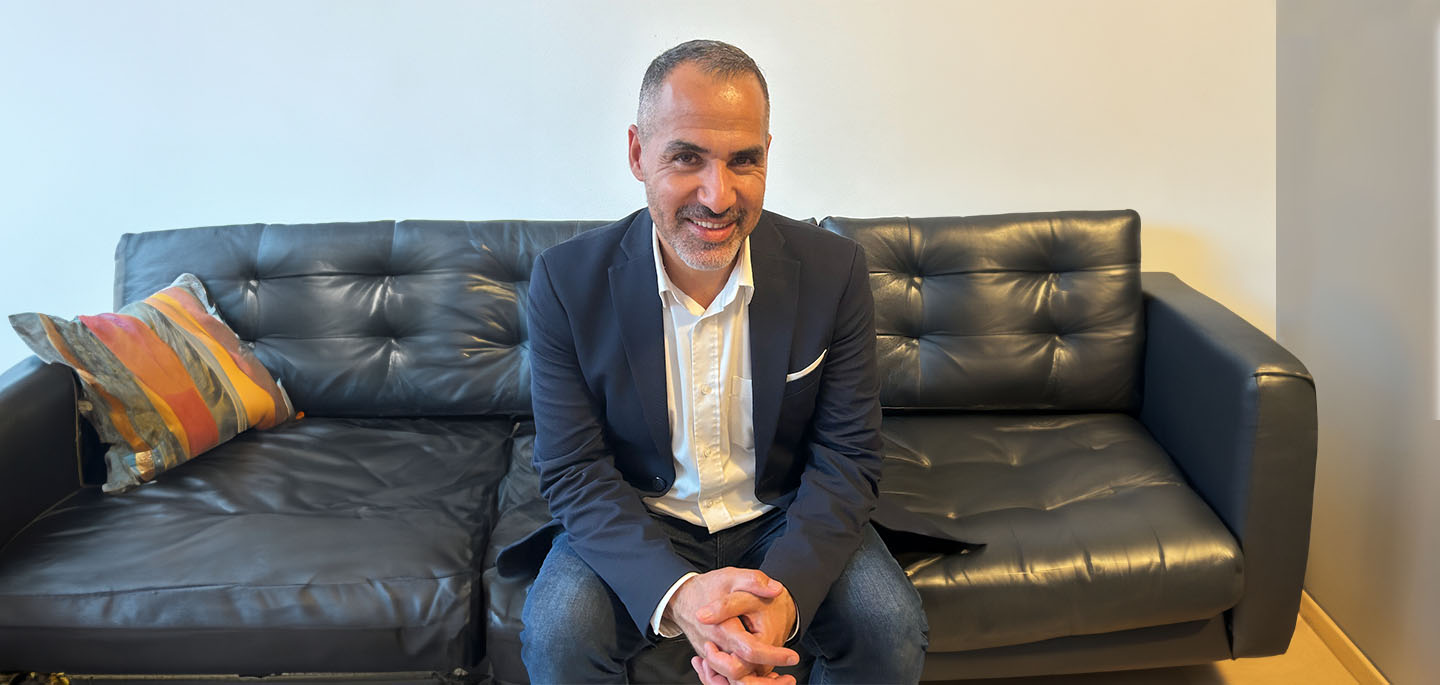S T O R Y
“Honor Thy Father?”
It was a trip I had been dreading. Driving down Main Street, I knew I was getting close. Turning onto a quiet side street, I saw a squarish, dark-red building surrounded by a tall, barbed-wire fence. That’s when the reality of the situation hit—my father is a prisoner.
Sitting in the parking lot, I wept. Fear, anger, and sorrow mixed with shame washed over me. How could I face my father behind bars? What would he say? What would I say?
I didn’t have long to find out. Pulling myself together, I walked into the jail and asked to see my dad.
Serious-looking black-and-white photos of sheriffs lined the walls of the waiting area, along with a poster listing the “Prisoner’s Rights: Freedom from cruel and unusual punishment, necessary medical treatment, communication with the outside world…”
“You can go in now.” The officer’s voice broke into my halfhearted reading. Walking toward the door leading into the visitors’ room, I wondered what I would find.
The heavy door swung open, and I saw a long, double-glass window divided by stainless steel separators for eight visitation booths. Each booth had a stainless-steel counter with a matching stool fastened to the floor. The atmosphere was as cold as an operating room.
Quickly scanning the line of prisoners on the other side of the glass, I saw my father at the end, waving for me to sit down at booth number 8. He picked up a phone on his side of the glass and motioned for me to pick up mine.
“Hi, Dad,” I could hear myself saying.
“Hi, Ann.”
I didn’t know what to say. The view through the glass was shocking. Rather than wearing a neatly pressed white shirt and tie, Dad wore an orange jumpsuit with the word “Inmate” written across the back. Instead of silver engraved cufflinks, a hard plastic identification bracelet circled his right wrist, showing his name, birth date, and ID number.
In the past I had always viewed criminals as basically “nonpersons” who were getting what they deserved. But now I knew things were much more complicated than that—now that my own father was behind the glass.

Mine had not been a happy childhood. Mom and Dad split on my fourth birthday. Custody battles followed, and by age 8 I was with Mom in California during the school year and with Dad and my stepmother in Illinois for the summer. The best part about it was the plane trips, the worst was my father’s moodiness and unpredictability and not knowing when he was or was not telling the truth.
Despite the moodiness and unpredictability at home, Dad attended church regularly. At church he was a different man. People admired him for his Bible knowledge and for his apparently sincere devotion to God. Although not a pastor, he sometimes gave the sermon, always preaching with pathos. And he was generous, frequently giving large donations to the church and to people in need.
Maybe that’s why his friends were shocked when on the evening news they saw helicopter photos of Dad’s house, interviews with his neighbors, and mug shots of him in the county jail. He was arrested on two counts of predatory criminal sexual assault. My father is a child molester.
So here I was, sitting in the jail’s visiting room wondering what to say. I knew the girl he had molested—a 7-year-old with long blond hair and trusting blue eyes. She and her family had befriended Dad while his wife was suffering from cancer. They mourned with him when she died. They included him in family gatherings and outings. They had trusted him, and he had molested their daughter.
I felt sick inside. I wanted to pull back, leave, run away. I wanted to scream, “This is not my father!” But there he was, sitting in jail with a Bible in front of him, pointing out verses about how God had not forsaken him.
What a hypocrite, I thought. Who do you think you’re fooling? I hated him. I hated him for what he had done to a little 7-year-old girl. I hated him for things he had done to me. I hated him for being unfaithful to my mother. I hated him for his unpredictability and his lies.
But I remembered what I had learned as a child in Sabbath school: “Honor your father and your mother, so that you may live long in the land the Lord your God is giving you” (Ex. 20:12, NASB)1.
And now the whole world knew that my father was dishonorable. For months I struggled—hating him, yet wondering if I was really supposed to honor my father? And what did it really mean to “honor” him?
Dealing With Reality
More than a year went by. At first he claimed innocence, but finally accepted a plea bargain. Five days before Christmas he was transferred to the state penitentiary, where he will be spending many years.
His letters tell of life in an 8-by-8-foot cell with a chain-smoking cell mate. They speak of a man full of shame, a man who has lost all honor and dignity because of the choices he has made.
The letters bring up sharp contrasts in my mind. As Dad tells of prison food being served on Styrofoam trays stuffed through slots in his cell door, I wonder if this is the same man who took me out to eat at the revolving restaurant on top of the Hyatt Regency O’Hare. Reading about his visits to the prison library, I wonder whether this is really the same person who sold religious books door-to-door.
I’m seeing that life can turn very quickly, and that appearances can be deceiving.
I haven’t gone to visit my dad in the penitentiary yet—I live too far away, both physically and emotionally. But perhaps I’m moving a little closer to him spiritually.
Gift of Honor

Not long ago I revisited the idea of honoring my father—after all, there must be a reason it is important enough to be listed as one of the Ten Commandments. Could it be that God wants me to give my dad the gift of honor when he needs it the most but deserves it the least?
A part of honor is to be recognized— to be acknowledged: “to acknowledge acquaintance with, to acknowledge with a show of appreciation.”2
While I detest the crimes that have put my father in prison, perhaps I can begin to honor him by not turning away, by acknowledging him not only as an acquaintance but as my father.
Second, I can show him honor by recognizing there is more to the criminal than just the crime. I can acknowledge that there are some good things about him, rather than allowing his crime to become the sole focus.
It helps me to remember that just as I am not 100 percent good, he is not 100 percent bad. I may not have sinned openly enough to end up in prison, but are the tears I have caused any less offensive to God? Yet God honors me through forgiveness and fellowship with Him—can I offer my father any less?
This road is not easy, but it is better than being locked into my own prison of hate, anger, resentment, and denial. I have the “key” that can let me out.
And perhaps that’s why the commandment is there in the first place— providing the freedom to “live long in the land the Lord your God is giving you” (Ex. 20:12, NASB).
I may not be able to unlock my father’s prison, but I can unlock my own.
—By Ann Hanawalt3
This article was first published in the Adventist Review, October 24, 2008. Used with permission.
- 1. †Scripture quotations marked NASB are from the New American Standard Bible, copyright © 1960, 1962, 1963, 1968, 1971, 1972, 1973, 1975, 1977, 1995 by The Lockman Foundation. Used by permission. ↩︎
- 2. “Honor,” Merriam-Webster Dictionary, 2007. ↩︎
- 3. A pseudonym. ↩︎
Images: AI-generated


